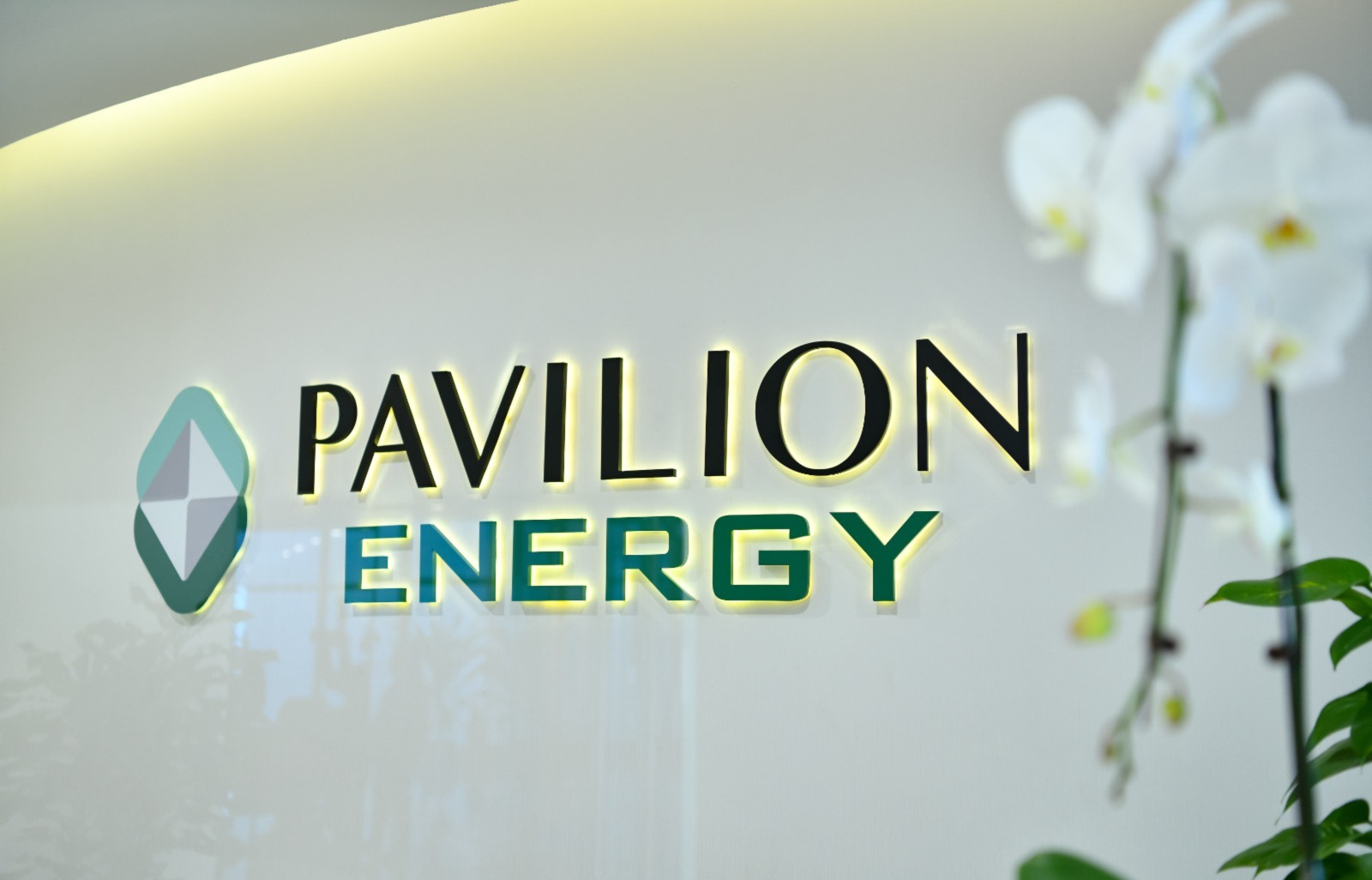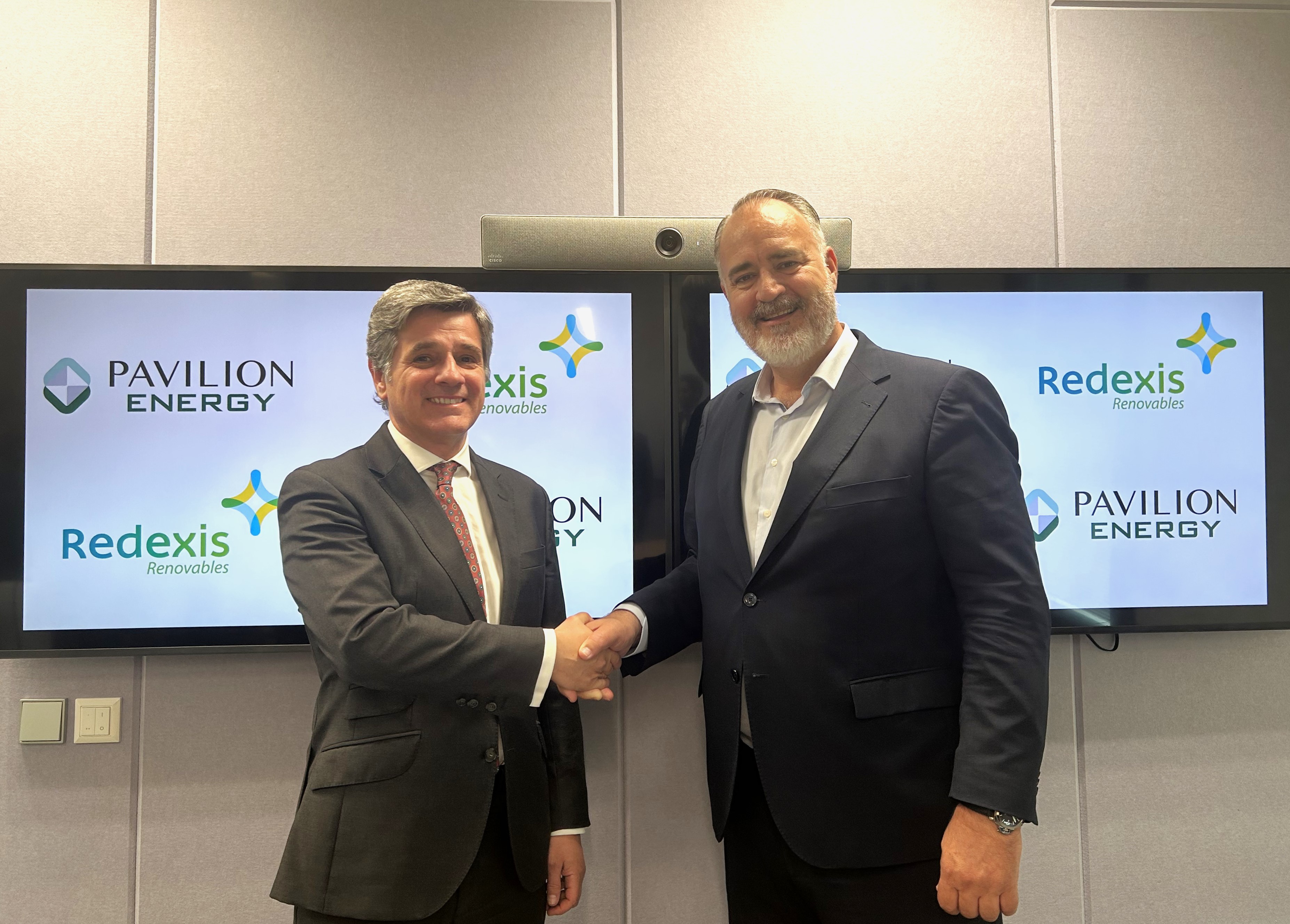Frédéric H. Barnaud joined Singapore-based natural gas & LNG player Pavilion Energy two and half years ago, with a remit to expand the business and position it as a leader on the world stage. He has hit the ground running – here he talks to Damian Stewart, Managing Partner at Human Capital, about the challenges and opportunities that lie ahead.
Pavilion Energy, backed by its parent company, the state-owned Singapore investment firm Temasek, is one of the key natural gas suppliers in Singapore accounting for a third of Singapore’s market. An active trader of LNG, natural gas and energy derivatives, the company is also a supplier of LNG as a bunker fuel and provider of energy hedging and financial solutions. When chief executive Frédéric Barnaud assumed his role in February 2018, bringing nearly 30 years of oil and gas experience to the business, it was a clear signal of intent as the company seeks to become a premier integrated energy business operating worldwide.
“Pavilion Energy is striving to be one of the key gas commercial and trading businesses globally,” says Frédéric, when we sit down to catch up at his office at the Marina Bay Financial Centre in Singapore, “Our DNA is in some ways quite unique – we have a utility mindset because we don’t shy away from assets and long-term contracts, but we also have a strong trading flavour. We focus on being agile when we look at optimisation and financial risk management; finally, we have some of the aspects of an IOC in that we operate across the entire value chain. Our model continues to be shaped as we evolve.”
I have known Frédéric for many years; he was a member of the Gazprom Marketing & Trading Executive Committee and its Chief Commercial Officer managing global LNG, Oil, LPG, Helium and Shipping for nearly a decade before he moved to Pavilion Energy. Before that, he was Global Head of LNG Trading & Shipping for Total, and prior to that was with Elf Aquitaine, beginning his career in the early nineties as an energy derivatives trader.
In many ways, Frédéric has LNG in his blood: “In each recent role, I have been creating and expanding businesses, mostly around LNG. So, it is the same market but I see it differently every time and reinvent the vision for a different context,” he says. “Knowing the tricks of the trade is one thing, but really adapting them to the culture and vision of each company, with different ownership and organisational structures, that is very exciting.”
Shortly after Frédéric took the helm at Pavilion Energy, he established an Energy Financial Solutions team to offer energy hedging and risk management services to organisations exposed to energy prices in Asia and beyond. Frédéric expects for this move to support the growth of financial trading activity in the LNG markets more broadly: “I believe LNG is one of the most complex markets, if not the most complex, in terms of risk management exposure. The LNG trade exposes you to oil, to the various gas indexes, to JKM as well as the other forming LNG indexes and currencies. In some older contracts, you can be exposed to power and coal prices as well. So, if you are managing an LNG portfolio like we do, you really need to interlink all those primary indexes and commodities which are not so well correlated among themselves. Hence we decided to make that a business and offer it as a service.”
Within 18 months of joining the business, Frédéric pulled off a game-changer deal for the company with the acquisition of Spanish utility Iberdrola’s portfolio of LNG assets, comprising about 4 million tonnes per annum (mtpa) of long-term LNG sale and supply contracts, regasification capacity in the U.K. and Spain; as well as a gas sales agreement for Pavilion Energy to supply natural gas to Spain.
Frédéric says: “That move was about the global side of our ambition. Firstly, the Singapore gas market is small when compared on a global scale, so on its own, it is simply not enough of an anchor for the business. Secondly, if you want to trade LNG pragmatically, you can cover Asia well from Singapore, but not the Atlantic. Finally, we needed a new home market with both LNG and gas; this is very much a time in the market where you need both LNG and gas capabilities. The market is much more balanced – the regasification, trading and storage of gas, you really need to work both directions, the geographical angle for LNG, and then the depth that comes from the LNG-to-gas dimension.”
He says the business had initially focused on organic growth but was on the lookout for accelerators in the form of acquisitions or team hires. When the Iberdrola opportunity came along, it ticked all the right boxes: “It’s not too big, not too small, it’s well balanced, it’s been well managed, it has a solid track record and I know the people,” says Frédéric. “We very quickly opened a process, and then it was all about execution.”
The initial focus had been on ensuring operational readiness to begin supplying natural gas to Iberdrola from day one whilst also setting up a strong presence in Spain, setting up market access across Western Europe and working on the global integration of the company’s core functions. Six months after signing the agreement, on 1 January 2020, Pavilion Energy assumed responsibility for all the financial and physical contracts and transactions.
Even with a fresh major milestone under their belt, Frédéric and his team have continued to keep a brisk pace with progress and new developments. In March 2020, Pavilion Energy announced a five-year storage and reload agreement with Singapore LNG Corporation which granted Pavilion Energy access to tank capacity of 180,000 m3 at the SLNG Terminal on Jurong Island. Such capacity not only supports a higher volume of LNG trading activities but provides greater flexibility in portfolio management and managing with market fluctuations and demand dynamics.
A month later, in what Frédéric describes as a pragmatic and proactive move to support the energy transition in the city state, Pavilion Energy premiered the industry’s first request for proposals (RFP) for up to 2 mtpa of carbon-neutral LNG for Singapore. “We foresee a situation where carbon-neutral LNG will be a requirement to stay competitive, where industries eventually evolve to a state where carbon neutrality becomes a norm for all of us. But the attractiveness of natural gas as a transition fuel must first be reinforced by a better understanding, followed by reduction of its carbon footprint,” says Frédéric about this significant development which could set the scene for a standardised industry framework for LNG GHG emissions and pave the way towards more environmentally responsible and sustainable natural gas strategies.
Both the Iberdrola acquisition and the RFP are clear signs that Frédéric has sophisticated the operational structure of the business, migrating it towards being more dynamic, agile and risk-enabled. Since 2018, Pavilion Energy has multiplied its trading volumes and is on its way to deliver (excluding churn) 6 million tonnes (mt) of physical LNG cargoes this year in addition to being one of the most active Asian players to trade the JKM financial LNG index.
The commoditisation and increased liquidity of the LNG market is having far-reaching implications on talent dynamics, with LNG professionals today requiring a very different skillset compared to a decade ago. The LNG trading industry is now facing a significant resourcing challenge, where not only is demand for optimisation and derivatives talent high and supply low, but the barriers to entry are similarly high, with some industry players reticent to bring in talent from outside of the LNG community. I am keen to understand how Frédéric is addressing these challenges in the context of Pavilion Energy’s evolving business model.
“As always, it starts with the shareholders and the company directors. They must fully understand the market opportunity and the requirements in terms of talent. We have spent a lot of time talking about it, building trust, exposing the rationale and now we have a very consistent story that runs throughout the organisation. This has made it easier to attract talent, because you have that consistency of message.”
The Iberdrola acquisition has also helped to strengthen and diversify the talent pool within the business. “The talent coming from the European gas business have been exposed to pricing gas through various indexations and with exposure to LNG, so the technicalities of price conversion are there. Then you have the risk management piece which is also very important, but takes time to establish,” says Frédéric as he points to critical differences in the way that risk management is dealt with, for example, with the quantification of risk proving to be a very ‘European approach’.
In a short space of time, Frédéric has taken big steps to create an integrated global energy business, with active downstream and marine businesses, physical LNG and derivatives trading, as well as energy hedging solutions. Under his direction, the organisation has gained better visibility and presence in the market, while its investments in the upstream segment have also become less of a priority.
“The platform we have now is quite good, but I think there is more to do. There will be organic growth, but I’m not really looking for size just for the sake of it and we don’t want to have too many distractions. We want to really focus on onboarding the new business and the new team and make it work,” says Frédéric who adds that: “Our operational, optimisation and financial expertise have strengthened our ability to build resilience and deliver value during the recent Covid-19 related demand and price shocks.”
Frédéric has spent his entire career in Europe to date, and though he set up the Singapore business for Gazprom which he ran remotely, he is having to adjust his leadership style now that he is based in Singapore. “I’m still learning; the cultural element is very different,” he says. “My style is quite simple – I try to promote delegation to the right people, but with strict accountability; that’s the trade-off. The learning is to be humble but also forceful.”
Frédéric is clearly enjoying rising to the challenge of his first CEO role: “Being CEO and being the head of the business means I am more exposed to organisational design, culture, and all those things, which are very interesting.”
He tells me that culture and mission go together. “Our culture is being agile whilst having a mid/long term vision – so that’s about valuing partnerships, and I don’t mean that in the contractual sense. It’s about relationships. Our presence in the market is very much about developing our reputation and our expertise; but we don’t want to rush.”
Although backed by Temasek, Pavilion Energy is commercially independent and has big ambitions to make its mark on the global LNG stage. Frédéric clearly has an eye for an opportunity and is transforming a company that has already achieved much in its first seven years.






